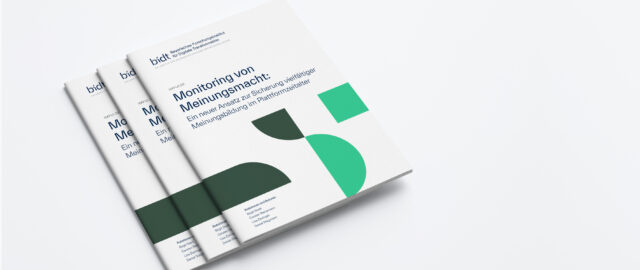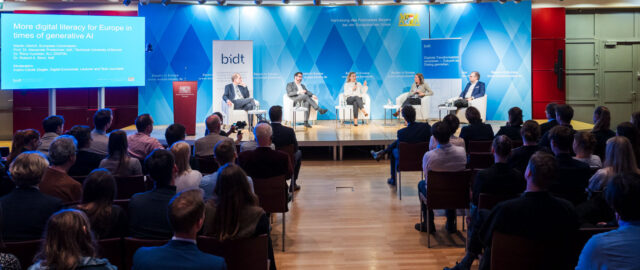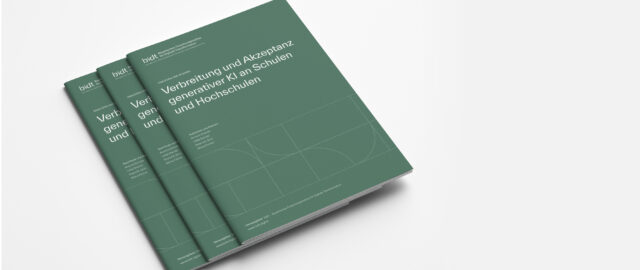Archives
Fit for voice-based AI systems
The functioning of language-based AI systems is often opaque. A model-based online platform aims to promote the confident use of these systems and help shape the digital future.

Paradigm shift: new approach to measuring opinion power in the platform age
Youtube, X, BILD – which media brands influence public opinion and how can opinion power be measured? The ‘bidt policy brief’ outlines how opinion power monitoring can replace the tv-centred media concentration law.

Promoting digital competence and critical judgement in the age of artificial intelligence
How well prepared is Europe for generative AI and an increasingly digitalized society? Experts discussed this at the bidt event “More digital literacy for Europe in times of generative AI“ in Brussels.

Generative AI is changing school and university – key challenges
The bidt study shows how generative AI is used and perceived, particularly in an educational context. A critical examination of AI, clear guidelines and controlled examination formats are just a few of the current challenges.

Increasing the digital competence of Europe: The “bidt-Digitalbarometer.international” study is presented in Brussels
How do things stand with regard to the digital competences of populations in different European countries? The “bidt-Digitalbarometer.international” was presented at the Representation of the Free State of Bavaria…

bidt as a guest on Deutschlandfunk’s “Systemfragen” podcast
As part of the Deutschlandfunk podcast “Systemfragen”, Dr Roland A. Stürz provided answers to the question “Why are Germans so attached to cash”, as well as further findings from the international comparison…
Award for Sarah Rachut
Sarah Rachut was honoured as a Young Leader in GovTech 2024 in the “Science & Civil Society” category.

Statement in favour of an open society and free research
Democratic values such as freedom, diversity and tolerance are not only the foundation of our society, but also indispensable for the work at bidt.

bidt Director Professor Dirk Heckmann re-elected as constitutional judge
tThe bidt congratulates Dirk Heckmann, who has been elected as a part-time constitutional judge for the fifth time. Professor Heckmann holds the Chair of Law and Security of Digitalisation at the Technical University of Munich…

“We must retain the joy of thinking and embrace new things!”
AI can solve many problems, but not all. In his lecture “What does ChatGPT mean? Opportunities and challenges for us all” on 17 January 2024, Professor Alexander Pretschner explained the importance of generative…

